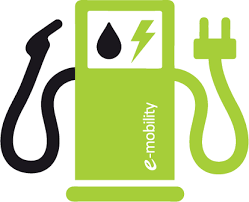Up till now around 380 charging points at 140 locations have been installed. High speed charging by 50 kW will be possible and the minimum capacity will be 20 kW. For access to charging points the provider “Smatrics” has developed a special App. The Austrian Utilities support this initiative and have founded a cooperative network named “Federal Association of Electrical Mobility in Austria / BEÖ.
On November 2016, the World Energy Council Austria organised a workshop on alternative mobility, not only electrical mobility, but also mobility on the basis of alternative fuels like hydrogen or bio ethanol which can be viable solutions for renewable and environmental friendly mobility concepts in the future.
Besides car ownership, e-car sharing has been rapidly developed in Lower Austria E-Mobility on the countryside, and comprises now about 50 urban and rural regions there, with different accounting principles according to time, distance and varying indicators.
Speaking at the event Dr Bernhard Geringer, Technical University of Vienna, noted that innovations in technology and reach of electrical vehicles are showing great progress. The specific energy demand in kWh/100km is dependent on speed, individual road behavior and the need for heating and air conditioning. Investigations show, that under normal weather conditions the demand is in the range of 13 to 25 kWh/100 km an can reach 40 kWh/100km in winter. Batteries will experience development in direction of energy density and lower price.
Comparing total costs of ownership, Dr Stephan Unger, World Energy Council Austria, noted that of gasoline operated and electrical vehicles, after six years of operation, a break-even of costs for electrical cars can be seen. He also went on to note that the influence of emissions reduction of the produced car fleet on stock price development is untypical and has no influence on Volkswagen, but had positive effects on Ford, Renault, Peugeot, Daimler and BMW and negative effects on General Motors.
Hydrogen and future fuels are increasing in relevance within the oil and gas industry. Hydrogen is today mainly generated from natural gas. In the short term, it will be possible to use electrolysis from surplus renewable energy of wind, hydro and solar generation. In the long term, direct solar generation from new bio-synthesis processes could be a valuable source, said Dr. Helga Prazak-Reisinger of OMV Group, who was also in attendance.
There is a growing market for hydrogen and other future gaseous or liquid fuels especially for commuter traffic on high speed highways, as rapid fueling will be possible, which will avoid the need for high power installations for electrical feeding points.
Dr. Guenther Brauner, Vice President, World Energy Council Austria
The presentations (in German) are available under: www.wec-austria.at/downloads






